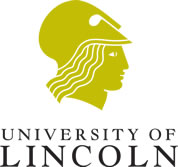Local Developer Success Story: University of Lincoln
Student developers demonstrate how deep integration with the rest of the university is one of the real benefits of a local developer.
In this DevCSI case study, Michelle Pauli interviews Joss Winn and Alex Bilbie to find out more about the impact student developers are having at the University of Lincoln…
The problem space
In 2009 the University of Lincoln simply did not have staff with the necessary skills and remit to develop projects around technological innovation for research, teaching and learning.
Lincoln’s Centre for Educational Research and Development (CERD) was keen to explore these areas and, using the knowledge and expertise of technology officer Joss Winn, succeeded in implementing various open source web applications such as WordPress blogs, Mahara e-Portfolios and Mediawiki. However, without dedicated programming skills, CERD soon reached its technological limits.
Fortunately, by that stage Joss had made a successful bid for a Rapid Innovation JISCPress project which enabled CERD to employ an undergraduate student, Alex Bilbie, as a freelance developer. Alex went on to take a year out from his studies to work full-time as a student developer within the ICT department, and is now returning to his degree on a part-time basis while continuing to work.
Alex’s employment by CERD and the ICT team took place within the context of the university’s Student as Producer project, which emphasises the role of the student in shaping the teaching and learning experience. Working as a “critical friend” within the department, Alex could bring a fresh approach to its thinking and, says Joss, “demonstrated to us that students can have the requisite skills, enthusiasm and experience to enable us to innovate rapidly.” Lincoln has gone on to employ more students in these kinds of roles.
Over the last two years at Lincoln, CERD, the ICT department and the library have worked collaboratively on four JISC-funded projects (JISCPress, Total ReCal, Linking You and Jerome) as well as other projects such as a virtual research environment and blogs.
The largest and most complex of the JISC projects was Total ReCal. It is a calendar system, rebranded as My Calendar when it launches at Lincoln later this year, which integrates information from multiple sources and makes the information accessible to any application that supports the standard iCalendar format.
It was a real project with huge amounts of data and showed other staff what could be done with very modern tools built on a different kind of database,” comments Joss, “and it provided excellent work experience for Alex and his co-developer, Nick Jackson.”
In addition, Alex worked on knowledge transfer partnerships, including discussions with the local council about how the university and the council might work together on open data schemes. This ongoing project to expose institutional data, data.ac.uk, involved working alongside high profile universities, including Cambridge, Oxford, Southampton and the Open University.
It all adds up to a successful experiment in student developers, both in terms of experience for the student developers themselves and outcomes for the institution as a whole.
“We’ve put Lincoln firmly on the map in terms of the JISC community,” says Alex. “We’re working alongside esteemed establishments and we’re in a good position as a young university – more established places have lots of old practices and policies whereas the culture at Lincoln remains focused on innovation. The work has been well-received by senior management and we’ve been nominated for staff awards. And I get to play with lots of new technology and interesting things!”
Tangible business benefits
As a result of its innovative ways of working, Lincoln has been remarkably successful at bidding for and attracting external funding for its projects. The projects themselves also have business benefits. Total ReCal is more than just a calendar service – it is a datastore using new database technology, MongoDB, with great potential for future developments.
Other savings include switching to an open source e-portfolio tool from a proprietary product, which has saved several thousand pounds a year in licensing.
There is also strong anecdotal evidence of tangible business benefits:
“The web manager has said that our setting up of the university blogs saves his team considerable time as staff can now set up their own managed websites. It also saves the university money that would otherwise be spent developing disparate websites for projects etc,” says Joss.
Why use a local developer?
For Joss, there is no question that Lincoln has made the right choice in filling its skills gap with student developers who have the skills, the enthusiasm and the local knowledge to say “we can do this”, and then get on and do it.
“Had we been asked to outsource the implementation of our ideas, we would have been much restrained by university processes for mandating projects and tendering, for example. The combination of quickly showing evidence of our work, as well as attracting external funding based on our ideas and experiments, has allowed us to build confidence in our work, among ourselves and our colleagues,” he says.
Alex points to the benefits of student developers having a good relationship with staff across the university:
“It’s not design-by-committee as it would be if the work was outsourced. I can make decisions and get on with it because I understand how it all works and can dip into and influence different parts of the university rather than just one department,” he says. “For example, during clearing I was able to look after the university social marketing campaign, managing our communications over Twitter and replying to tweets. Deep integration with the rest of the university is a real benefit of a local developer.”
“It’s also about putting money where our mouth is,” concludes Joss. “Student as Producer is not just about involving students at the committee level but about having them working alongside you, grounding your work and driving the experience.”









It’s great to see this published.
Since this was written, we published the Linking You Toolkit, which the Case Study mentions, and have brought together our all our project work across the university under a new group called LNCD.
Here are the links:
http://lncn.eu/toolkit
http://lncd.lincoln.ac.uk
I’m also pleased to see this published. I think the developments at Lincoln as described here are an inspiration to the sector. More power to Joss, Alex and co!